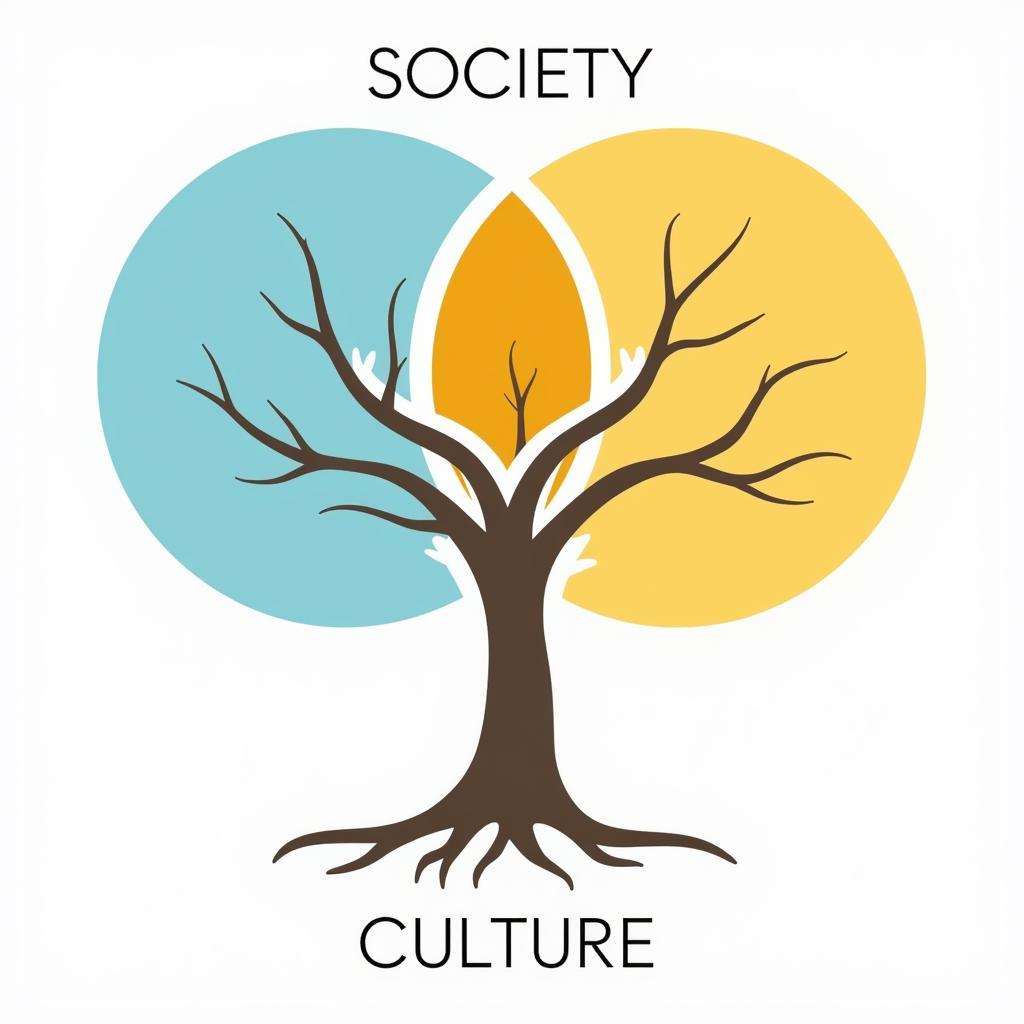Society and culture are often used interchangeably, leading to confusion about their distinct meanings. Understanding the difference between these two interconnected concepts is crucial for navigating the complexities of human interaction and fostering a more peaceful global community. Let’s delve into the nuances of each term and explore how they shape our world. eswatini building society
Defining Society: Structure and Organization
Society refers to a group of people living together in a structured community, sharing a common geographical territory, and interacting under a shared system of rules, laws, and customs. It emphasizes the organizational aspect of human life, focusing on the patterns of relationships, institutions, and social structures that govern behavior. Think of a society as the framework within which people live, work, and interact. This framework includes political systems, economic structures, and social hierarchies.
 Society: Structure and Organization
Society: Structure and Organization
Key Characteristics of Society:
- Shared Territory: Societies typically occupy a defined geographical area.
- Social Interactions: Members of a society engage in regular interactions.
- Common Culture: While distinct from culture, societies often share a dominant culture.
- Social Order: Rules, laws, and customs maintain order within a society.
- Institutions: Societies establish institutions like governments, educational systems, and healthcare facilities.
Defining Culture: Shared Values and Practices
Culture, on the other hand, encompasses the shared values, beliefs, customs, behaviors, artifacts, and knowledge that characterize a particular group or community. It represents the learned and transmitted patterns of thought and action that shape people’s worldviews and interactions. Culture is the vibrant tapestry of human expression, encompassing everything from language and art to religion and cuisine.
How Does Culture Differ from Society?
While intertwined, culture and society are distinct concepts. A society provides the structure, while culture gives it meaning and context. Societies can exist with multiple cultures within them, and cultural elements can transcend societal boundaries. For example, the United States is a society with a diverse range of cultural influences, from Native American traditions to immigrant cultures.
Key Elements of Culture:
- Values and Beliefs: Shared principles and ideologies.
- Customs and Traditions: Practices passed down through generations.
- Language and Communication: The way people express themselves.
- Art and Aesthetics: Creative expressions of a culture.
- Religion and Spirituality: Belief systems and spiritual practices.
## What is the Relationship Between Society and Culture?
Culture influences the way societies are structured and function, shaping their institutions, laws, and customs. Conversely, societal structures can influence the development and transmission of cultural values and practices. This reciprocal relationship creates a dynamic interplay between the two.
Dr. Anya Sharma, a prominent sociologist, emphasizes the symbiotic nature of this relationship: “Culture provides the software for the societal hardware. It’s the operating system that guides how individuals interact within the structured environment of a society.”
national history honor society
Why is it Important to Distinguish Between Society and Culture?
Understanding the distinction between society and culture is essential for promoting cross-cultural understanding and building a more peaceful world. Recognizing that different societies may have different cultural norms and values helps us to appreciate diversity and avoid misunderstandings. This distinction also enables us to analyze social issues more effectively, understanding how cultural factors contribute to societal challenges.
 The Interplay of Society and Culture
The Interplay of Society and Culture
societies with slaves definition
Conclusion: Building Bridges of Understanding
Distinguishing between society and culture provides valuable insights into the complexities of human interaction. By recognizing their distinct roles and their interconnectedness, we can foster greater appreciation for diversity, promote cross-cultural dialogue, and work towards a more peaceful and interconnected global community. Understanding these concepts is a crucial step towards building bridges of understanding and fostering a more harmonious world.
FAQ
- Can a society exist without a culture?
- How does globalization impact the relationship between society and culture?
- What are some examples of cultural differences between societies?
- How can we promote cultural understanding in a diverse society?
- What role does education play in transmitting culture within a society?
- Can culture change over time within a society?
- How do societal changes impact cultural values?
Need more help understanding societies and cultures? Explore our articles on eswatini building society and societies with slaves definition.
When you need support, please contact us.
Phone: 02043854663
Email: [email protected]
Address: Khu 34, Bac Giang, 260000, Vietnam.
We have a 24/7 customer service team ready to assist you.